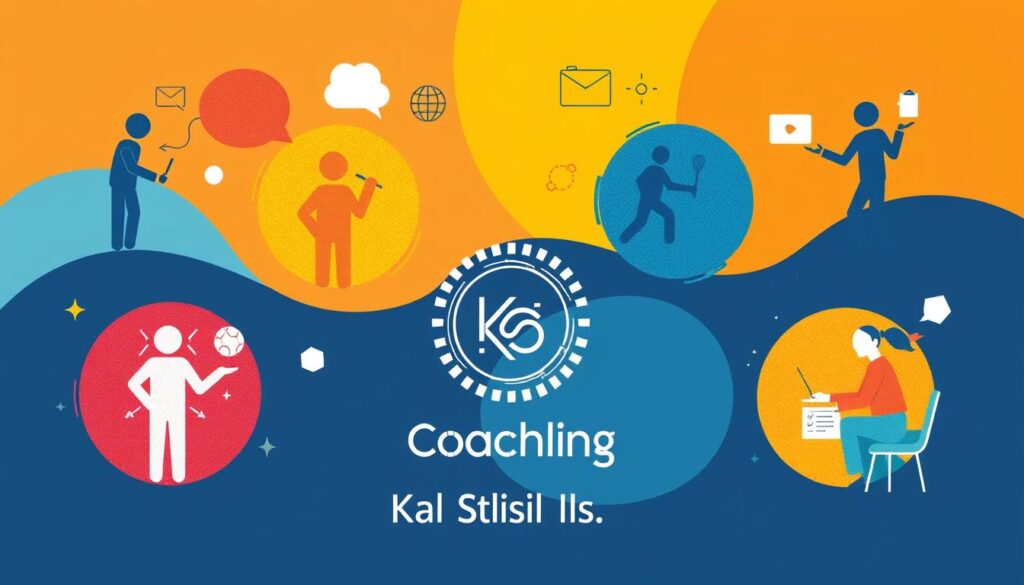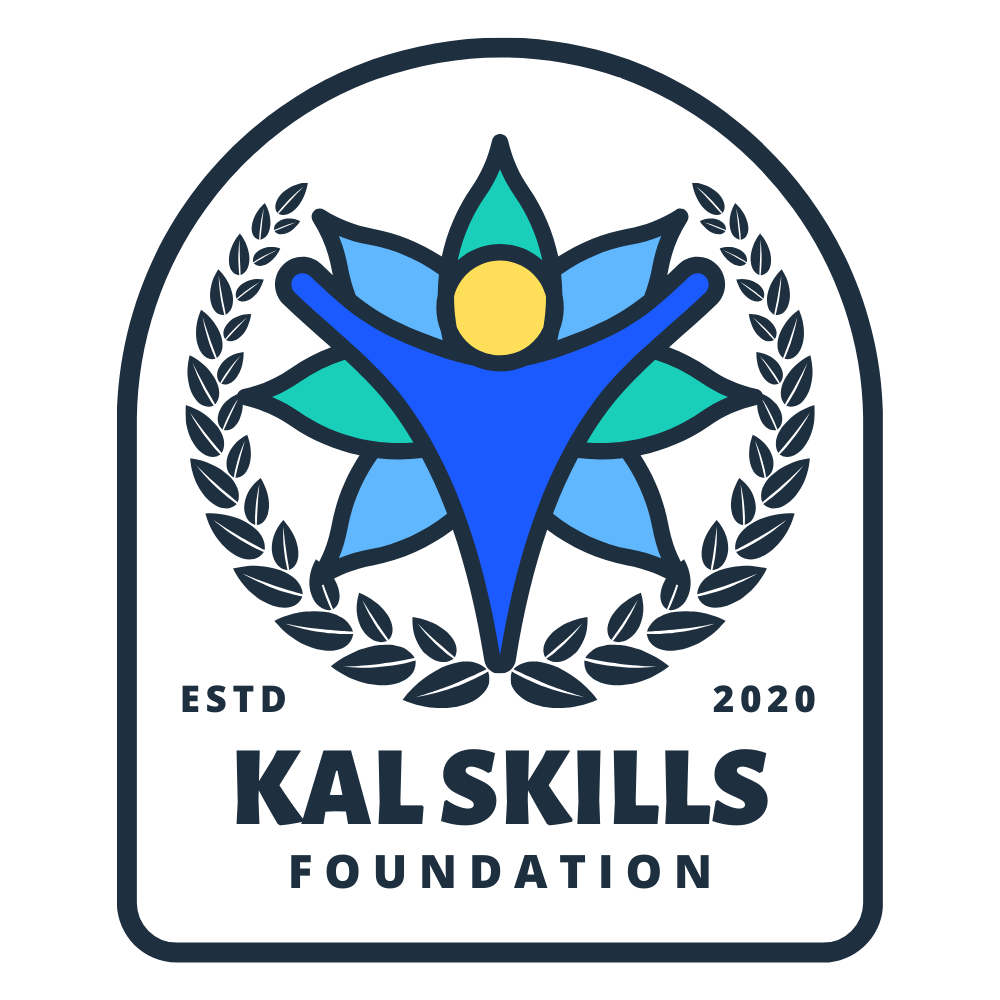Ever thought about whether you need a coach or a mentor for your career? Knowing the difference between coaching and mentoring is key for career growth. Coaching helps improve specific skills and reach short-term goals. Mentoring, on the other hand, focuses on long-term personal and professional development.
Both coaches and mentors can greatly help employees. They often lead to higher job satisfaction and career progress1. Choosing the right one can make a big difference in your success.
Key Takeaways
- The difference between coaching & mentoring lies in structure and focus: coaching is often task-oriented, while mentoring is relationship-driven.
- Employees with mentors or coaches have shown improved job satisfaction and organizational commitment1.
- Both coaching and mentoring are effective for enhancing confidence and interpersonal skills2.
- Coaching is generally more formal and structured compared to the informal nature of mentoring3.
- Career advancement can be accelerated through mentoring due to networking opportunities and tailored guidance3.
Understanding Coaching and Mentoring
Coaching and mentoring are key for growing personally and professionally. The definition of coaching is about a structured way to help people or teams reach their goals. It focuses on improving performance in a set time frame.
Coaching usually lasts from weeks to months. It’s for immediate needs or goals4. Mentoring, on the other hand, is about sharing knowledge and advice for long-term growth and development.
Coaching is about improving performance through direct feedback and guidance4. It sets specific goals for short to medium terms. Mentoring, however, builds a deep, lasting relationship. It focuses on both professional and personal growth, key for future leaders.
Coaching and mentoring differ in their approach. Coaching is led by the coach, using questions to help progress4. Mentoring is more about the mentee, letting them lead discussions based on their needs and dreams. Both are powerful ways to develop individuals, meeting different needs5.
| Aspect | Coaching | Mentoring |
|---|---|---|
| Duration | A few weeks to several months | A few years to a lifetime |
| Focus | Performance improvement | Long-term personal and professional growth |
| Structure | Structured and task-oriented | Enduring and often informal |
| Feedback Type | Specific, actionable feedback | Informal feedback over time |
| Initiator | Coach | Mentee |
| Expertise | No requirement for domain specific experience | Requires substantial experience in the field |
The Importance of Coaching in Professional Development
Coaching is key in professional growth. It boosts leadership and performance, helping people move up in their careers6. Companies that invest in coaching see happier and more productive employees. For example, districts with coaching programs can save up to $1M for other important needs7.
Coaching tackles immediate problems and sets clear goals. It offers personalized advice, helping employees face challenges with confidence7. This approach prepares them for future hurdles and encourages ongoing learning.
Having a coach can also boost a professional’s career and performance7. It ensures they have the skills to succeed in tough environments. Coaches help set personal goals and build trust and respect with their clients.
| Aspect | Coaching | Mentoring |
|---|---|---|
| Duration | Short-term (up to 6 months or 1 year) | Long-term (typically a year or more) |
| Focus | Performance-driven | Development-driven |
| Structure | More structured with scheduled meetings | More informal, as needed |
| Goals | Co-created by coach and coachee | Set by mentee with mentor support |
| Outcome Measurement | Specific and measurable improvements | Focus on overall development, may shift over time |
In summary, valuing coaching in professional development is crucial. It promotes personal growth and boosts overall company success.
The Role of a Coach
A coach plays a key role in professional settings. They act as a trusted guide to help you find your strengths and weaknesses. They work with you to set goals and track your progress. This way, they can create strategies to help you overcome obstacles and reach your goals.
Coaching is a short-term relationship aimed at improving performance. It’s different from mentoring, which is longer-term. A good coach uses skills like active listening, effective communication, and problem-solving to help you grow.
Coaches give structured feedback and support to motivate you. This is crucial for improving your skills and achieving success. Studies show that 70% of people who get coached see better work performance. Also, 86% of companies find that coaching pays off and more8.
Coaching practices include setting clear goals, evaluating results, and being available throughout the process9.
Coaches do more than just help with skills. They also help you become more self-aware and confident. These are key for lasting success in your career. A coach helps you meet your goals and builds a strong sense of responsibility8.
Key Types of Coaching
There are many types of coaching to meet different needs. Executive coaching helps leaders get ready for new roles. It boosts personal growth and leadership skills.
Integrated coaching works with bigger training plans. It lets people use what they learn right away. Team coaching makes groups work better together, improving teamwork and communication.
Virtual coaching is big in today’s online world. It helps people in remote jobs. Sales coaching focuses on making sales better. Communication coaching helps with talking and working with others.
Each type of coaching tackles unique problems. They help people grow in important areas. This can make a big difference in how well they do their jobs and how well the company does.
| Coaching Type | Primary Focus |
|---|---|
| Executive Coaching | Leadership transition and personal development |
| Integrated Coaching | Combining coaching with broader training |
| Team Coaching | Enhancing collaboration and teamwork |
| Virtual Coaching | Remote support for flexible workplaces |
| Sales Coaching | Improving sales techniques and strategies |
| Communication Coaching | Developing interpersonal skills |

Knowing about all the coaching formats helps in making better choices for growth. This is true for both personal and work goals1011.
Advantages and Disadvantages of Coaching
Coaching brings many benefits for both people and companies, making it key for growth. It offers personalized development that fits your goals and challenges. Coaches give outside views, spotting areas for improvement that you might miss.
Success in coaching depends on skilled coaches and clear goals. It also needs time and commitment from the organization. This can be a challenge.
The benefits of coaching include better skills and performance. The coaching industry grew by over 30% from 2015 to 2019, showing its importance12. Many big companies use coaching to keep talent and share knowledge12.
But, coaching can be costly and needs ongoing effort. There might also be resistance to feedback.
Knowing the coaching pros and cons helps you deal with these issues. A good coaching program needs leadership and participant commitment. Despite challenges, coaching can boost skills and knowledge in the workforce.
The Role of a Mentor
A mentor is key to your growth in both life and work. They offer guidance that fits your path. Mentors use their experience to share insights and help with career challenges.
Mentors help you navigate your work world. They share their knowledge and support you when things get tough. There are many types of mentorship, each designed to meet different needs13.

Mentors are like sounding boards for your ideas. They help you plan your career and grow personally14. Mentoring is different from coaching, focusing more on long-term growth15.
The role of a mentor is to give advice, support, and connect you with others. This makes your work life richer and helps you reach your goals. Knowing what mentors do can help you find the right one for you.
Types of Mentoring Relationships
Exploring the different types of mentoring relationships can boost your career. Each format meets various needs, offering unique benefits. Here are some common ones:
- One-on-One Mentoring: This traditional method pairs an experienced worker with a newer colleague. It’s all about personal guidance, helping with direct knowledge sharing and growth.
- Group Mentoring: Here, one mentor works with several mentees at once. It’s a chance for everyone to learn together, sharing questions and experiences.
- Mentoring Circles: These create a space for peers to share and support each other. They’re great for networking and building strong bonds among participants.
- Reverse Mentoring: This fresh approach has junior employees teaching senior leaders. It’s about keeping up with new tech and social media, bridging age gaps and fostering learning.
Each mentoring type offers special benefits, like better networking and learning together. Choosing the right mentor is key for your growth. It’s important to match your mentor with your goals.
As you try out different mentoring styles, you’ll gain from the wisdom of others. This not only helps you grow but also makes the workplace better. It prepares everyone to face today’s challenges together1617.
Advantages and Disadvantages of Mentoring
Mentoring brings many benefits that help with personal and professional growth. It creates a supportive learning environment in organizations. This allows for personalized guidance that matches the individual’s career goals, helping them learn more and move up faster18.
It also provides emotional support, making it easier to talk openly. This boosts confidence and motivation.
But, there are also downsides to mentoring. It often lacks the structured approach of coaching. This might make it less effective in solving specific problems19.
Also, the informal nature of mentoring can lead to unclear expectations. This can cause issues for both mentors and mentees.
The success of mentoring also depends on the mentor’s availability, especially if they’re in a senior role20. If mentors are not fully engaged, the guidance may not be consistent or of high quality. Yet, when done well, mentoring can greatly benefit both individuals and organizations.

Difference Between Coaching and Mentoring
Coaching and mentoring are often confused, but they are different. Knowing these differences is key for personal or professional growth. Coaching focuses on specific skills and has clear goals. Mentoring, however, is about nurturing and long-term growth.
Studies show that 85% of teachers benefit from both coaching and mentoring21. Coaching relationships are formal, with 9 out of 10 being agreed upon21. About 70% of coaching focuses on specific goals, guiding the individual’s path21.
Mentoring is more informal, relying on the mentor’s experiences to help the mentee. It’s seen as more appealing, without the stigma of coaching22. Mentoring offers quick solutions and strategies, perfect for those who value certainty22.
Coaching involves structured sessions, lasting 4-6 times for 1-2 hours each23. Training for coaches is short-term, while mentoring focuses on life experiences for longer-term clarity23. Mentors give advice based on experience, while coaches encourage individuals to find their own solutions22.
When to Use Coaching
Coaching plays a big role in many professional growth situations. It can make your team more effective and engaged. Here are some key times when coaching really helps.
Leadership Development
Coaching is key for growing leaders. It helps them think strategically and be more adaptable. Studies show coaching usually lasts four to six sessions, each lasting one to two hours24.
It focuses on boosting leadership skills with personalized feedback and exploring new strategies24. Good coaching can make your team more productive and efficient.
Performance Improvement
Coaching is crucial for improving performance. It boosts productivity by setting clear goals and giving regular feedback. Research shows coaching can improve self-confidence, problem-solving, and technical skills2524.
Teams often become happier and more aligned with goals after coaching. This shows the power of targeted coaching efforts.
Skill Development
Coaching is vital for skill development. It provides a practical learning space for ongoing career growth. Traditional training often fails to retain information well, with 50% forgotten in an hour and 90% lost in a week25.
Coaching offers a lasting solution. It helps integrate learning into everyday work, improving skill retention and use.

When to Use Mentoring
Mentoring can greatly improve your company’s growth plan. Knowing when to use mentoring is crucial for its success in different work settings.
Succession Planning
Mentoring is essential for planning for the future. It pairs new leaders with experienced ones. This ensures knowledge and skills are passed on, helping the company grow.
Studies show that those with mentors are happier and advance in their careers. Over 70% of people say they work better with a mentor1.
Employee Development
Mentoring helps employees grow at all levels. It supports both personal and professional goals. This is important because many without mentors think about leaving their jobs.
But, those with mentors stay longer. This makes the workplace better for everyone8.
Diversity and Inclusion Initiatives
Mentoring is key for diversity and inclusion. It helps create a welcoming work environment. Programs like this motivate and inspire people, making the workplace better for all26.
Conclusion
It’s key to know the difference between coaching and mentoring for your career growth. Coaching usually aims at specific skills and goals. Mentoring, on the other hand, helps with overall career and personal development. This understanding helps both individuals and companies to use these methods well, leading to better results.
Both coaching and mentoring offer big benefits. They meet different needs and preferences. For example, 57% of executives have used coaching, and 70% with mentors feel more successful27. This shows how both can boost job satisfaction and company success.
Creating a learning culture in your workplace with coaching and mentoring can help you succeed in your career. Knowing when and how to use each can help you reach your goals. It makes your team stronger and more resilient28.
FAQ
What is the difference between coaching and mentoring?
How does coaching help in professional development?
Can you explain the role of a mentor?
What are the types of coaching available?
What are the advantages of mentoring?
When should I consider using coaching?
In what situations is mentoring beneficial?
Source Links
- Coaching vs Mentoring: What’s the Difference? | Chronus – https://chronus.com/blog/coaching-vs-mentoring-whats-the-difference
- Mentoring vs Coaching: The Key Differences and Benefits – https://www.pushfar.com/article/mentoring-vs-coaching-the-key-differences-and-benefits/
- Mentoring vs. Coaching: Key Differences, Benefits, and Examples – https://careerminds.com/blog/mentoring-vs-coaching-key-differences-benefits-and-examples
- Understanding the Differences Between Mentoring and Coaching – https://www.linkedin.com/pulse/understanding-differences-between-mentoring-coaching-kdrff
- Breaking Down the Difference Between Coaching and Mentoring – CoachHub – https://www.coachhub.com/blog/breaking-down-the-difference-between-coaching-and-mentoring/
- The Differences between Coaching, Training, and Mentoring – https://www.linkedin.com/pulse/differences-between-coaching-training-mentoring-deirdre-e-orr
- Guiding Growth: The Time-Tested Role of Mentoring and Coaching in Teacher Success – https://newteachercenter.org/story/guiding-growth-the-time-tested-role-of-mentoring-and-coaching-in-teacher-success/
- What is the difference between a coach and mentor? | Together Mentoring Software – https://www.togetherplatform.com/blog/what-is-the-difference-between-mentorship-and-coaching
- Coaching Versus Mentoring: What is the Difference? – https://extension.psu.edu/coaching-versus-mentoring-what-is-the-difference
- Coaching Vs. Mentoring: 3 Key Differences & Examples | Radical Candor – https://www.radicalcandor.com/blog/coaching-vs-mentoring/
- Mentoring vs Coaching: The Key Differences and Benefits – Think Learning – https://www.think-learning.com/employee-engagement/mentoring-vs-coaching/
- Coaching vs Mentoring – https://cpdonline.co.uk/knowledge-base/business/coaching-vs-mentoring/
- What is a Coach vs. a Mentor? A Guide to Both and When to Search – https://www.betterup.com/blog/coach-or-mentor-you-need-both
- Coaching vs. Mentoring: What’s the Difference? | Built In – https://builtin.com/articles/coaching-vs-mentoring
- Mentoring vs Coaching: 2 Big Differences and Use Cases – https://www.mentorcliq.com/blog/mentor-vs-coach-know-the-differences
- Discover the Distinct Differences: Coaching vs Mentoring Explained – River – https://www.riversoftware.com/uncategorized/discover-the-distinct-differences-coaching-vs-mentoring-explained/
- Workplace learning with coaching and mentoring – https://www.open.edu/openlearn/money-business/workplace-learning-coaching-and-mentoring/content-section-3
- A Simple Guide to Coaching vs Mentoring — The L&D Academy – https://www.thelndacademy.com/post/a-simple-guide-to-coaching-vs-mentoring
- CIPD | Coaching and mentoring | Factsheets – https://www.cipd.org/en/knowledge/factsheets/coaching-mentoring-factsheet/
- Microsoft Word – 902431_what-is-coaching-and-mentoring-and-the-benefits-1.0 (1) – https://www.elft.nhs.uk/sites/default/files/2023-02/what is it coaching and mentoring and the benefits1.pdf
- What’s the Difference Between Coaching and Mentoring? (Opinion) – https://www.edweek.org/education/opinion-whats-the-difference-between-coaching-and-mentoring/2017/07
- A closer look at the differences between mentoring and coaching – https://www.linkedin.com/pulse/closer-look-differences-between-mentoring-coaching-chhaya-mba-ma
- Training, Coaching and Mentoring: What’s the Difference? – https://www.accipio.com/eleadership/coaching-and-mentoring/training-coaching-and-mentoring-whats-the-difference/
- Coaching vs. Mentoring vs. Training: Differences & Similarities – https://trafft.com/mentoring-vs-coaching/
- Coaching vs Training vs Mentoring | EZRA – https://helloezra.com/resources/insights/coaching-vs-training-vs-mentoring
- Know the Difference Between Coaching and Mentoring – https://www.kent.edu/yourtrainingpartner/know-difference-between-coaching-and-mentoring
- Coaching Vs Mentoring: The True Meaning, Differences, and Impact – https://www.coffeepals.com/blog/coaching-vs-mentoring-the-true-meaning-differences-and-impact
- Coaching vs. Mentoring: What’s the Difference? – https://www.mentoringcomplete.com/coaching-and-mentoring-whats-the-difference/





